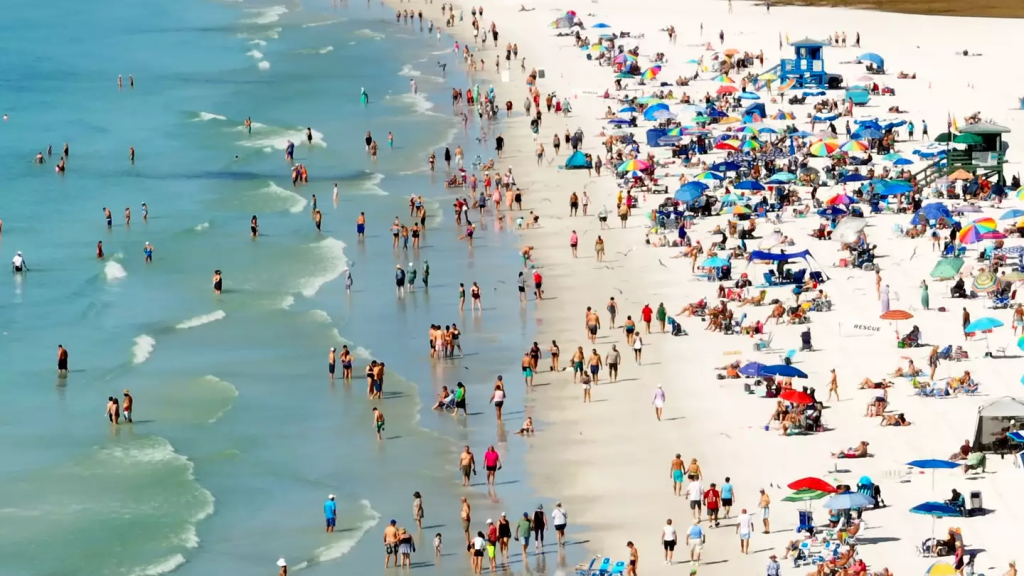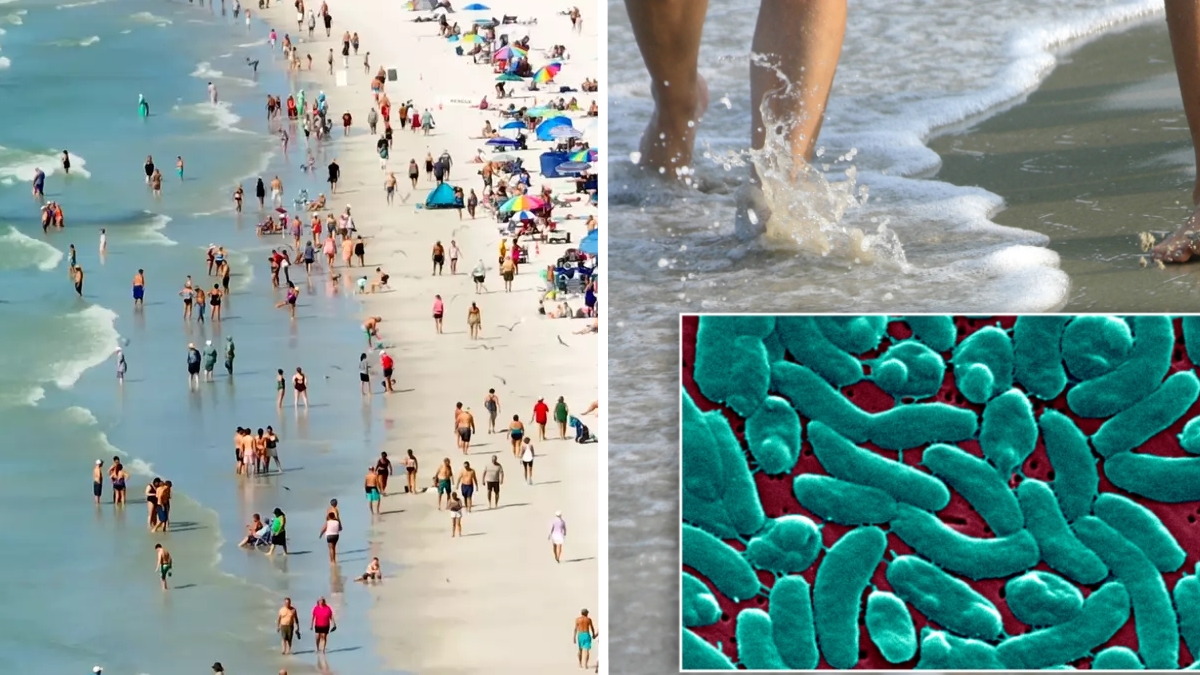Four Floridians have tragically died and seven more have been hospitalized this year due to a rare but deadly infection caused by Vibrio vulnificus, the so-called “flesh-eating bacteria” that thrives in warm salt- and brackish-water along Florida’s coast.
Florida’s Department of Health confirmed that 11 cases were reported in 2025, with nearly half resulting in fatalities. Publicly, officials emphasized urgent warnings for swimmers and seafood lovers alike: “Avoid entering saltwater with open wounds,” they urged—because Vibrio can rapidly invade through even the smallest cut.
In a detailed Washington Post report, health agencies warned that from May to October, ocean temperatures soar, enabling this bacterium to flourish—and Hurricane-linked surges often drive it inland.
“Flesh‑eating Vibrio can kill in 48h—Florida, stay safe out there.”
Symptoms escalate fast. Mild cases bring stomach pain, diarrhea, fever and vomiting. But once Vibrio enters wounds or the bloodstream, it can cause swift necrotizing fasciitis—a flesh-rotting infection that often requires surgical amputation and carries a mortality rate around 50%. People.com shared survivor reactions, recounting this as one of the worst pains ever experienced.

Florida’s baseline is worrying: from 2016 to 2024, the state averaged 49 cases and 11 deaths annually. In 2024 alone, hurricanes Helene and Ian triggered spikes. This year’s toll has already matched historical averages—raising alarms about a growing climate-driven health crisis. India Times covered the trend.
“Four dead, seven sick in Florida—this isn’t a summer cold, it’s deadly.”
Beachgoers and fisherfolk are at greatest risk. The infection can enter invisible nicks or through raw oysters—the most common seafood carrier of Vibrio vulnificus. Florida health bulletins now caution anyone with cuts, liver disease, diabetes, cancer, or weakened immunity to either avoid coastal waters or take protective steps.
The CDC recommends early treatment with IV antibiotics like doxycycline and ceftazidime. Cases involving septicemia or necrosis often involve emergency surgical debridement or even limb amputation—all to prevent fatal septic shock. People reported emergency protocols.
Meanwhile, awareness campaigns are ramping up. Florida officials reiterated: cleanse wounds immediately, avoid raw shellfish, wear gloves, and don’t risk water with open injuries. COVID-era caution signs now give way to Vibrio advisories at beaches and docks.
Health experts warn this could be a global pattern. Warm coastal zones—from Gulf states to the Carolinas—are seeing Vibrio cases double as sea temperatures rise. By 2018, the infection zone expanded northward by 30 miles per year. Washington Post outlines climate links.
Hospital emergency centers responded rapidly to this summer’s surge. Dr. Daniel Egan of Orlando Health told The Independent that he’s treating at least one suspected Vibrio patient daily—many already past the point of simple antibiotic treatment.

Citrus, Broward, Hillsborough, Bay, and St. Johns counties have all reported cases so far, with Hillsborough confirming at least one death. Officials emphasize that the real toll may be underreported due to lack of widespread testing and awareness. WTSP tracked the geographic spread.
The economic impact is serious. Increased hospital stays, surgeries, and public health outreach weigh heavily on budgets. Early prevention is being hailed as the only cost-effective solution—long before cases turn tragic.
Clinical experts are also sounding the alarm: “Even healthy people can deteriorate fast,” says an infectious-disease specialist quoted in India Times. If symptoms flare post-beach visit, patients must seek emergency care immediately—Don’t wait for the infection to spread.
Final thought: this isn’t just another summer scare. It’s a clear sign of a changing world where once-rare zoonotic threats are becoming seasonal killers. Florida’s mournful loss is a warning to coastal communities everywhere—vigilance must replace vacation carelessness.





